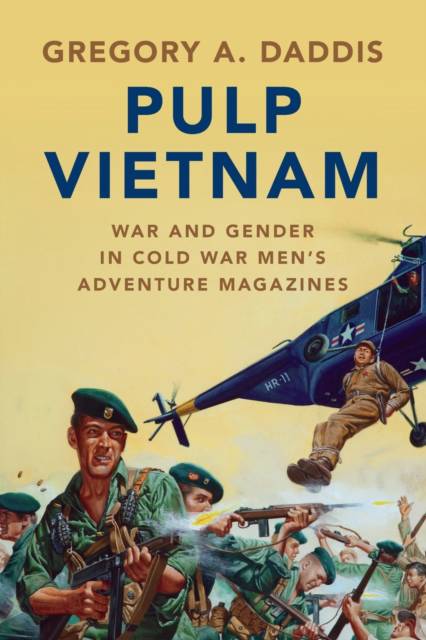
- Afhalen na 1 uur in een winkel met voorraad
- Gratis thuislevering in België vanaf € 30
- Ruim aanbod met 7 miljoen producten
- Afhalen na 1 uur in een winkel met voorraad
- Gratis thuislevering in België vanaf € 30
- Ruim aanbod met 7 miljoen producten
Zoeken
Omschrijving
In this compelling evaluation of Cold War popular culture, Pulp Vietnam explores how men's adventure magazines helped shape the attitudes of young, working-class Americans, the same men who fought and served in the long and bitter war in Vietnam. The 'macho pulps' - boasting titles like Man's Conquest, Battle Cry, and Adventure Life - portrayed men courageously defeating their enemies in battle, while women were reduced to sexual objects, either trivialized as erotic trophies or depicted as sexualized villains using their bodies to prey on unsuspecting, innocent men. The result was the crafting and dissemination of a particular version of martial masculinity that helped establish GIs' expectations and perceptions of war in Vietnam. By examining the role that popular culture can play in normalizing wartime sexual violence and challenging readers to consider how American society should move beyond pulp conceptions of 'normal' male behavior, Daddis convincingly argues that how we construct popular tales of masculinity matters in both peace and war.
Specificaties
Betrokkenen
- Auteur(s):
- Uitgeverij:
Inhoud
- Aantal bladzijden:
- 376
- Taal:
- Engels
- Reeks:
Eigenschappen
- Productcode (EAN):
- 9781108737302
- Verschijningsdatum:
- 10/11/2022
- Uitvoering:
- Paperback
- Formaat:
- Trade paperback (VS)
- Afmetingen:
- 152 mm x 229 mm
- Gewicht:
- 503 g

Alleen bij Standaard Boekhandel
+ 52 punten op je klantenkaart van Standaard Boekhandel
Beoordelingen
We publiceren alleen reviews die voldoen aan de voorwaarden voor reviews. Bekijk onze voorwaarden voor reviews.











